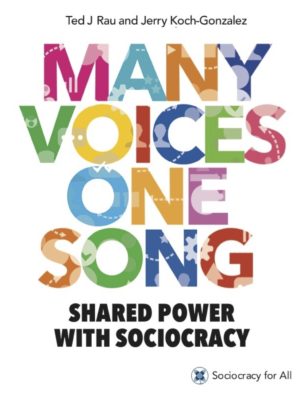Category: History and Philosophy
Understanding the history and theory of both democracy and sociocracy provides a deeper understanding of the principles and practices of what a sociocracy or sociocratic democracy might be, and why. Knowing the intention and development of an idea supports the meaningful application of its principles and practices in everyday life.
In dynamic governance there is no option to stand aside — the only options are consent or object. If you don’t have tangible objections, ones that can be teased out and addressed, then you consent. It maybe a passive consent, “I don’t see any reason not to do this”, or an active consent, “I really think this is a good idea.” Both are consent.
We have members who insist on having a stand aside option,… Read More . . . “Consent & Responsibility” The purpose of leadership and decision-making structures in sociocracy is to build the maximum power for everyone. And to balance that power with harmony and fairness. It is the responsibility of each person in a sociocratic organization to develop their own power and to use it to optimize the work of the organization.
In physics, power is the rate at which work is performed or energy converted.
As people, we have personal power, the ability… Read More . . . “What Is Power?” Power over is not always about forcing, coercing, pressuring, manipulating etc. It can be as engaging as power with. In terms lazy subordination and undeveloped personal power, power over can be an engaged relationship between the autocrat and the subordinate. Some people want to be dominated and to do so is engaging them, even if it is codependence. With the possible exception of physical force, as in terrorists on a plane, power over is a… Read More . . . “Positive Power Over” A wonderfully readable update on brain research is Jonah Lehrer’s How We Decide that looks at how our emotions affect decisions and what the brain tells us about it. Lehrer worked in the lab of Nobel Prize-winning neuroscientist Eric Kandel, is editor-at-large for Seed Magazine, and publishes regularly in major magazines and newspapers. He has both the education to interpret brain research and the ability to write about it clearly — welcome ability. And the… Read More . . . “How We Decide and Why It Matters” How could it be possible for everyone in a company to be making decisions? There is too much information. People would be in meetings all day and most people don’t want all that information and won’t listen anyway.
In the sociocratic structure of interconnected decision-making circles, everyone participates in the decisions that directly affect their daily work, but only in those decisions. Unless they are the elected representative or the operational leader they don’t participate… Read More . . . “How Can Everyone Make Decisions?” The Spirit of Democracy by Larry Diamond is a very readable analysis of the growth and deficiencies of democratic governments around the world. In 1974, only 25% chose their governments in free elections. By the mid-1980s, two of every five states were democratic. By the mid-1990s, the Berlin Wall had collapsed and three of five states were democratic. Further, Diamond notes, democracy had become a zeitgeist, a spirit of the time. It had also shown… Read More . . . “The Spirit of Democracy” 
